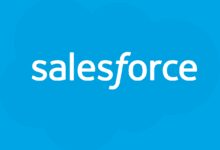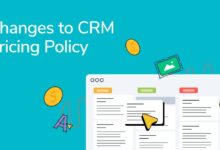Salesforce CRM Pricing: 7 Shocking Truths You Must Know
Thinking about Salesforce CRM but confused by its pricing? You’re not alone. With so many plans, add-ons, and hidden costs, understanding Salesforce CRM pricing can feel like decoding a secret language. Let’s break it down—clearly, honestly, and without the fluff.
Salesforce CRM Pricing: A Complete Breakdown

When it comes to customer relationship management (CRM), Salesforce is the gold standard. But with great power comes complex pricing. Salesforce CRM pricing isn’t just about monthly fees—it’s about scalability, customization, and long-term value. Whether you’re a startup or a global enterprise, understanding the full cost structure is essential before making a decision.
What Drives Salesforce CRM Pricing?
Salesforce doesn’t use a one-size-fits-all model. Instead, pricing is based on several key factors:
- User Licenses: Each user needs a license, and the type of license determines access and cost.
- CRM Edition: From Essentials to Unlimited, each tier offers different features and capabilities.
- Customization & Automation: Advanced workflows, AI tools, and integrations increase costs.
- Storage & Data Volume: Higher data usage may require additional storage packages.
- Support Level: Premium support options come at an extra cost.
Unlike simpler CRMs, Salesforce charges per user, per month, with annual contracts typically required. This means costs scale quickly as your team grows.
Hidden Costs in Salesforce CRM Pricing
Many businesses underestimate the true cost of Salesforce because they only look at the base price. But additional expenses can add up fast:
Implementation Fees: Setting up Salesforce often requires consultants or developers.These services can range from $5,000 to over $100,000 depending on complexity.Training: Employees need training to use Salesforce effectively.Salesforce offers Trailhead for free learning, but formal training programs cost extra.Third-Party Apps: The AppExchange hosts thousands of apps, many of which are paid.Popular tools like Mailchimp or DocuSign integrations can cost $20–$100 per user per month.
.Custom Development: Building custom dashboards, reports, or workflows often requires hiring a developer or admin.”The sticker price of Salesforce is just the beginning.The real cost lies in adoption, integration, and ongoing management.” — CRM Industry Analyst, Gartner
Understanding Salesforce CRM Pricing Tiers
Salesforce offers multiple CRM editions tailored to different business sizes and needs.Each tier in Salesforce CRM pricing unlocks more features, automation, and support.Let’s explore the core options..
Salesforce Essentials: Entry-Level for Small Teams
Priced at $25 per user per month (billed annually), Salesforce Essentials is designed for small businesses with up to 10 users. It’s the most affordable entry point into Salesforce CRM pricing.
- Basic contact, lead, and deal management
- Email integration with Gmail and Outlook
- Mobile app access
- Limited customization and automation
While budget-friendly, Essentials lacks advanced reporting, workflow automation, and multi-currency support. It’s best for startups testing the waters—but not for long-term growth.
Salesforce Professional: The Most Popular Tier
At $80 per user per month, Salesforce Professional is the go-to choice for mid-sized businesses. This tier offers a solid balance of functionality and cost in Salesforce CRM pricing.
- Full sales force automation (SFA)
- Customizable dashboards and reports
- Workflow rules and approval processes
- Integration with third-party apps via API
- Role-based security and user permissions
Professional Edition is ideal for companies that need more than basic CRM features but don’t require AI or advanced analytics. However, it doesn’t include Einstein AI or advanced forecasting tools.
Salesforce Enterprise: For Growing Businesses
Priced at $165 per user per month, Salesforce Enterprise is built for organizations that need deep customization and scalability. This tier is where Salesforce CRM pricing starts to reflect enterprise-grade capabilities.
- Unlimited custom apps and objects
- Advanced workflow automation
- API access for custom integrations
- Dedicated customer support
- Multi-currency and multi-language support
Enterprise Edition is perfect for businesses with complex sales processes or those integrating Salesforce with ERP systems. However, it often requires hiring a Salesforce admin or developer to manage it effectively.
Salesforce Unlimited: The Premium Experience
At $330 per user per month, Salesforce Unlimited is the most powerful—and most expensive—tier in Salesforce CRM pricing. It includes everything in Enterprise plus premium support and advanced features.
- 24/7 phone and online support
- Higher API limits
- Advanced analytics and Einstein AI tools
- Sandbox environments for testing
- Dedicated account executive
Unlimited is designed for large enterprises that demand maximum uptime, customization, and innovation. While costly, it offers the highest ROI for companies with mature CRM strategies.
Salesforce Sales Cloud vs Service Cloud: Pricing Differences
Salesforce CRM pricing varies significantly depending on whether you’re using Sales Cloud, Service Cloud, or both. These are two of the most widely used Salesforce clouds, each serving different business functions.
Sales Cloud Pricing: Powering Your Sales Team
Sales Cloud is the core sales automation platform. Its pricing aligns with the editions mentioned earlier—Essentials, Professional, Enterprise, and Unlimited.
- Essentials: $25/user/month – basic lead and deal tracking
- Professional: $80/user/month – pipeline management, email integration
- Enterprise: $165/user/month – custom apps, workflow automation
- Unlimited: $330/user/month – AI, sandboxes, premium support
Sales Cloud also offers Lightning Professional and Lightning Enterprise versions, which include modern UI and enhanced productivity tools. These are now the standard for new implementations.
Service Cloud Pricing: Customer Support Made Smarter
Service Cloud focuses on customer service and support. Its pricing starts at $75/user/month for the Digital Edition and goes up to $300+/user/month for Unlimited.
- Digital Edition: $75 – chat, email, social media support
- Professional: $100 – case management, knowledge base
- Enterprise: $150 – omnichannel routing, custom apps
- Unlimited: $300+ – AI-powered service, sandboxes
Service Cloud also includes Einstein Bots and Omni-Channel Routing, which help automate customer interactions. These features significantly impact Salesforce CRM pricing when added.
Can You Mix Sales and Service Cloud?
Yes—and many companies do. If your team needs both sales and service capabilities, Salesforce allows you to combine licenses. However, this increases the total cost.
- A sales rep might have a Sales Cloud Professional license ($80)
- A support agent might have a Service Cloud Professional license ($100)
- Managers might have combined access, requiring higher-tier licenses
Integration between clouds is seamless, but budgeting becomes more complex. Always assess whether users truly need full access to both platforms.
Salesforce CRM Pricing for Marketing Cloud and Other Add-Ons
Beyond Sales and Service Cloud, Salesforce offers specialized clouds that extend functionality—but also increase costs. These modules are critical for understanding the full scope of Salesforce CRM pricing.
Marketing Cloud: Email, Ads, and Customer Journeys
Marketing Cloud is one of the most powerful—and expensive—add-ons. Pricing is not per user but based on data volume, email sends, and features used.
- Starter Package: Starts around $1,000/month for basic email marketing
- Advanced Journeys: $2,500–$10,000+/month for automation and personalization
- Social Studio: Additional $500–$1,500/month for social media management
Unlike Sales Cloud, Marketing Cloud pricing is opaque and requires direct consultation with Salesforce. This lack of transparency often surprises new buyers.
Commerce Cloud and Pardot: Niche but Powerful
For e-commerce and B2B marketing, Salesforce offers Commerce Cloud and Pardot.
- Pardot: Starts at $1,250/month for 10 users—ideal for B2B marketing automation
- Commerce Cloud: Starts at $5,000/month and can exceed $100,000 for enterprise brands
These tools integrate with core CRM data but are sold separately. Their inclusion dramatically changes the total cost of ownership in Salesforce CRM pricing.
Einstein AI: Smarter Insights at a Cost
Einstein AI is Salesforce’s artificial intelligence engine. It’s included in higher-tier plans but available as an add-on for others.
- Einstein Analytics: $75–$150/user/month
- Einstein Prediction Builder: $50/user/month
- Einstein Next Best Action: $100+/user/month
AI tools can boost productivity, but they’re not cheap. For example, adding Einstein to 50 users could cost an extra $5,000–$10,000 annually.
How Salesforce CRM Pricing Compares to Competitors
Is Salesforce worth the price? Let’s compare Salesforce CRM pricing to top competitors like HubSpot, Zoho CRM, and Microsoft Dynamics 365.
HubSpot vs Salesforce: Cost and Simplicity
HubSpot offers a free CRM with paid tiers starting at $45/user/month. Its interface is simpler and more intuitive than Salesforce.
- Free CRM: Contact management, email tracking, basic reporting
- Starter: $45/user/month – pipelines, live chat
- Professional: $800/month for 5 users – marketing automation, workflows
While HubSpot is cheaper and easier to use, it lacks the depth and scalability of Salesforce. For complex sales cycles or global teams, Salesforce remains superior despite higher Salesforce CRM pricing.
Zoho CRM: Budget-Friendly Alternative
Zoho CRM starts at $14/user/month and offers robust features even in lower tiers.
- Standard: $14 – basic automation, email integration
- Professional: $23 – custom functions, webforms
- Enterprise: $40 – advanced automation, audit trails
Zoho is ideal for small to mid-sized businesses on a tight budget. However, it doesn’t match Salesforce’s ecosystem, AppExchange, or AI capabilities.
Microsoft Dynamics 365: Enterprise Competitor
Dynamics 365 starts at $65/user/month for Sales Professional and goes up to $225 for Enterprise. It integrates tightly with Microsoft 365, making it attractive for existing Microsoft users.
- Strong Excel, Teams, and Outlook integration
- Lower entry cost than Salesforce Enterprise
- Less intuitive UI and smaller app marketplace
Dynamics 365 is a solid alternative, but Salesforce still leads in innovation, third-party integrations, and global support—justifying its premium Salesforce CRM pricing for many enterprises.
How to Reduce Salesforce CRM Pricing Costs
While Salesforce isn’t cheap, there are smart ways to reduce costs without sacrificing value. Here’s how to optimize your investment.
Negotiate Your Contract
Salesforce rarely gives discounts upfront, but they’re negotiable—especially for annual commitments or larger teams.
- Ask for multi-year discounts (up to 10–15% off)
- Negotiate free training or implementation credits
- Bundle clouds for better rates
Always involve a procurement expert or Salesforce partner during negotiations. According to Forrester Research, businesses that negotiate save an average of 12% on their first-year contract.
Optimize User Licenses
Not every employee needs a full Salesforce license. Use lower-cost or limited-access licenses where possible.
- Chatter Only: $5/user/month – for employees who only need collaboration
- Customer Community: $10–$100/user/month – for external partners or clients
- Platform Licenses: $25–$100 – for developers or admins who don’t need full CRM access
Regularly audit user roles and deactivate unused accounts to avoid paying for idle licenses.
Leverage Free Tools and Training
Salesforce offers a wealth of free resources to reduce training and development costs.
- Trailhead: Free interactive learning platform with certifications
- AppExchange: Thousands of free or low-cost apps
- Developer Edition: Free sandbox for testing and learning
Investing time in Trailhead can save thousands in external training fees. Many companies train internal admins using these tools, reducing reliance on consultants.
Real-World Salesforce CRM Pricing Examples
Let’s look at actual pricing scenarios to understand how Salesforce CRM pricing plays out in real businesses.
Startup with 10 Users
A small tech startup opts for Salesforce Essentials at $25/user/month.
- 10 users × $25 = $250/month
- Implementation: $5,000 (one-time)
- Training: $1,000
- Total Year 1 Cost: ~$9,000
This is manageable, but they’ll likely outgrow Essentials within a year.
Mid-Sized Company with 50 Users
A growing SaaS company uses Sales Cloud Professional at $80/user/month.
- 50 users × $80 = $4,000/month
- Implementation: $20,000
- Training: $5,000
- AppExchange apps: $1,000/year
- Total Year 1 Cost: ~$74,000
This is a significant investment, but justified by improved sales efficiency and forecasting accuracy.
Enterprise with 500 Users
A global manufacturer uses Sales Cloud Enterprise and Service Cloud Enterprise.
- 300 Sales Users × $165 = $49,500/month
- 200 Service Users × $150 = $30,000/month
- Implementation: $150,000
- Custom Development: $50,000/year
- Total Year 1 Cost: ~$1.1 million
At this scale, Salesforce CRM pricing is a major budget item—but the ROI in customer retention and sales productivity can be transformative.
Common Mistakes in Salesforce CRM Pricing Decisions
Even experienced buyers make costly mistakes when evaluating Salesforce CRM pricing. Avoid these pitfalls to protect your budget and maximize ROI.
Underestimating Implementation Costs
Many assume Salesforce is ready to use out of the box. In reality, setup can take weeks or months and require expert help.
- Custom fields, workflows, and reports need configuration
- Data migration from old systems is complex
- Integration with email, phone, and ERP systems takes time
Always budget 20–30% of your annual license cost for implementation.
Over-Licensing Users
Assigning full CRM licenses to employees who only need read-only access wastes money.
- Executives might only need dashboard access
- Support staff may not need full sales data
- External partners can use community licenses
Use role-based access control to assign the lowest-cost license that meets each user’s needs.
Ignoring Long-Term Scalability
Choosing a low-tier plan to save money today can backfire tomorrow.
- Essentials lacks automation needed for growth
- Professional Edition may not support complex integrations
- Migrating between editions can be costly and time-consuming
Plan for 2–3 years ahead. It’s often smarter to start with Professional or Enterprise to avoid future disruption.
Final Verdict: Is Salesforce CRM Pricing Worth It?
Salesforce CRM pricing is undeniably high, especially compared to alternatives. But cost isn’t the only metric that matters—value is.
- For small businesses: May be overkill unless you plan to scale fast.
- For mid-sized companies: Justifiable if you need automation, reporting, and integration.
- For enterprises: Often the best choice for global teams, complex processes, and innovation.
The key is aligning Salesforce CRM pricing with your business goals. When implemented well, Salesforce can increase sales productivity by 30%, reduce customer churn, and provide unmatched insights.
“Salesforce isn’t the cheapest CRM, but for many, it’s the most valuable.” — Salesforce State of Sales Report
Is Salesforce CRM pricing worth it? If you need a scalable, powerful, and future-proof CRM, the answer is often yes. But only if you plan carefully, negotiate wisely, and invest in adoption.
What is the starting price for Salesforce CRM?
Salesforce CRM starts at $25 per user per month with the Essentials plan. However, most businesses opt for the Professional edition at $80 per user per month for more robust features.
Does Salesforce offer a free version?
Salesforce does not offer a free CRM version, but it provides a free 30-day trial for all its editions. Additionally, the Developer Edition is free forever with limited functionality, ideal for learning and testing.
How much does Salesforce cost for 10 users?
For 10 users on the Professional edition, Salesforce costs $800 per month ($80/user). With implementation and training, the first-year total could range from $15,000 to $25,000 depending on customization needs.
Can you negotiate Salesforce pricing?
Yes, Salesforce pricing is negotiable. Discounts are more likely for annual or multi-year contracts, larger user counts, or bundled cloud purchases. Working with a Salesforce partner can also improve negotiation leverage.
What factors increase Salesforce CRM pricing?
Key cost drivers include the number of users, CRM edition (Essentials to Unlimited), additional clouds (Service, Marketing), AI features (Einstein), third-party apps, implementation services, and custom development.
Understanding Salesforce CRM pricing is the first step to making a smart investment. From entry-level Essentials to enterprise-grade Unlimited, each tier offers unique value. While the costs can add up—especially with add-ons and services—the platform’s scalability, innovation, and ecosystem make it a leader for a reason. The real question isn’t just “How much does it cost?” but “What will it be worth to your business?” With careful planning, Salesforce can deliver transformative results that far exceed its price tag.
Further Reading:


